#Ox tongue
Explore tagged Tumblr posts
Text




A glimpse from August
- made some pizza
- pastries from Yuzu no Ki
- pork and chicken cutlet and ox tongue rice from HK Tea Cafe
#august#cafe#foodgasm#foodie#food#hungry#yummy#foodporn#好好味#toronto#好吃#好味#hohomeimei#pork cutlet#chicken cutlet#rice#hk art#hk food#baked rice#ox tongue#lets eat#choux cream#pastries#pizza#homemade#yum#toronto adventures#toronto food#toronto foodie#dessert
60 notes
·
View notes
Text
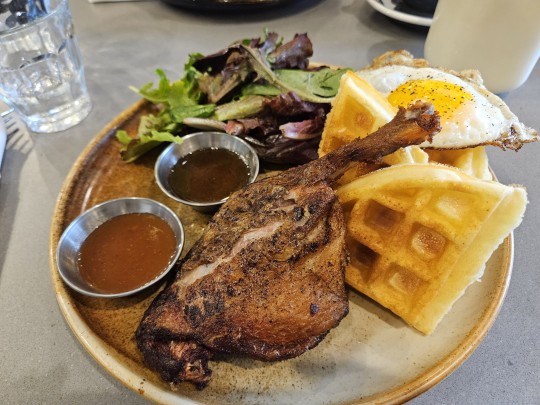
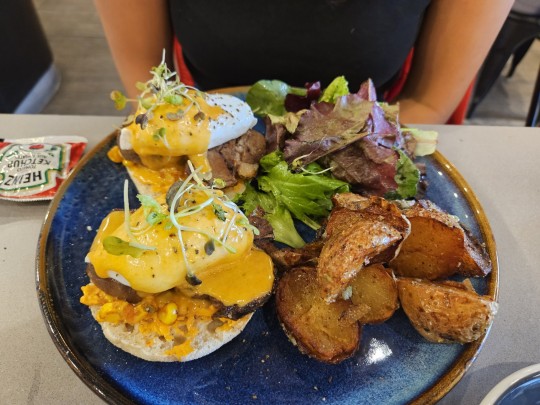
24 notes
·
View notes
Text
料理トリビアのまとめ #0009
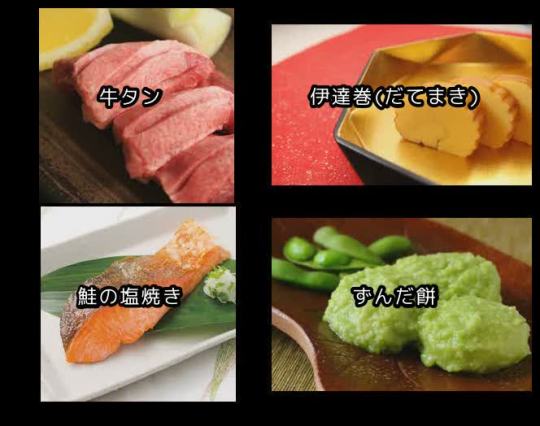
#宮城の郷土料理#Zunda mochi#Miyagi local cuisine#鮭の塩焼き#ずんだ餅#伊達巻#JapaneseCooking#料理トリビア#Ox tongue#Datemaki#Salt-grilled salmon#牛タン
0 notes
Photo

牛タン 宮城の郷土料理
牛タン料理は、宮城県仙台市を中心に広く愛されている料理で、牛の舌(タン)を使用したものです。柔らかくてジューシーな食感が特徴で、独特の風味を楽しむことができます。 牛タンの調理法は、通常、特製のタレで味付けされ、炭火で焼かれます。焼く際には、しっかりとした火加減でじっくりと焼き上げられ、表面がこんがりと焦げ目がつくまで焼きます。その後、薄くスライスして提供されることが一般的です。 一般的な食べ方としては、焼きたての牛タンを特製のタレや塩などと一緒にいただくことが多いです。また、ご飯やビールなどと一緒に楽しむのも良いでしょう。 仙台市をはじめとする宮城県内には、多くの牛タン専門店や焼肉店があり、地元の人々や観光客が牛タンを楽しむことができます。牛タンは宮城県のグルメの一つとして、地域の特産品として親しまれています。
✄🔪🥄🍽✄🔪🥄🍽✄🔪🥄🍽✄🔪🥄🍽
Ox tongue Miyagi local cuisine
Beef tongue cuisine is a dish that is widely loved, especially in Sendai City, Miyagi Prefecture, and is made using beef tongue. It is characterized by its soft and juicy texture, and you can enjoy its unique flavor. Beef tongue is usually prepared with a special sauce and grilled over charcoal. When grilling, it is cooked slowly and carefully over high heat until the surface is golden brown. It is then typically served thinly sliced. The most common way to eat it is to eat freshly grilled beef tongue with a special sauce or salt. It's also good to enjoy it with rice or beer. There are many beef tongue specialty restaurants and yakiniku restaurants in Miyagi Prefecture, including Sendai City, where locals and tourists can enjoy beef tongue. Beef tongue is one of the gourmet foods of Miyagi Prefecture and is a popular regional specialty.
0 notes
Note
Do you conlang? I was wondering if you had naming languages (or possibly even more developed ones) for pulling the words you use. I tried to search your blog but didn't find anything, wouldn't be surprised if the feature is just busted tho. Your worldbuilding is wonderful and I particularly enjoy the anthropological and linguistic elements.
Ok the thing is I had kind of decided I was not going to do any conlanging because I don't feel like I'm equipped to do a good job of it, like was fully like "I'm just going to do JUST enough that it doesn't fail an immediate sniff test and is more thoughtful than just keysmashing and putting in vowels". And then have kinda been conlanging anyway (though not to a very deep and serious extent. I maybe have like....an above average comprehension of how language construction works via willingness to research, but that's not saying much, also I can never remember the meanings of most linguistic terms like 'frictives' or etc off the top of my head. I'm just kinda raw dogging it with a vague conceptualization of what these things mean)
I do at least have a naming language for Wardi (and more basic rules for other established languages) but the rudimentary forms of it were devised with methods much shakier and less linguistically viable than even the most basic naming language schemes, and I only went back over it LONG after I had already made a bunch of words so there's some inconsistencies with consonant presence and usage. (This can at least be justified because it IS a language that would have a lot of loanwords and would be heavily influenced by other language groups- Burri being by far the most significant, Highland-Finnic and Yuroma-Lowlands also being large contributors)
The 'method' I used was:
-Skip basic construction elements and fully move into devising necessary name words, with at least a Vibe of what consonants are going to be common and how pronunciation works -Identify some roots out of the established words and their meanings. Establish an ongoing glossary of known roots/words. -Construct new words based in root words, or as obvious extensions/variants of established words. -Get really involved in how the literal meanings of some words might not translate properly to english, mostly use this to produce a glossary of in-universe slang. -Realize that I probably should have at least some very basic internal consistency at this point. -Google search tutorials on writing a naming language. -Reverse engineer a naming language out of established words, and ascribe all remaining inconsistencies to being loanwords or just the mysteries of life or whatever.
I do at least have some strongly established pronunciation rules and a sense of broad regional dialect/accents.
-'ai' words are almost always pronounced with a long 'aye' sound.
-There is no 'Z' or 'X' sound, a Wardi speaker pronouncing 'zebra' would go for 'tsee-brah', and would attempt 'xylophone' as 'ssye-lohp-hon'
-'V' sounds are nearly absent and occur only in loanwords, and tend to be pronounced with a 'W' sound. 'Virsum' is a Highland word (pronounced 'veer-soom') denoting ancestry, a Wardi speaker would go 'weer-sum'.
-'Ch' spellings almost always imply a soft 'chuh' sound when appearing after an E, I, or O (pelatoche= pel-ah-toh-chey), but a hard 'kh' sound after an A or U (odomache= oh-doh-mah-khe). When at the start of a word, it's usually a soft 'ch' unless followed by an 'i' sound (chin (dog) is pronounced with a hard K 'khiin', cholem (salt) is pronounced with a soft Ch 'cho-lehm')
-Western Wardin has strong Burri cultural and linguistic influence, and a distinct accent- one of the most pronounced differences is use of the ñ sound in 'nn' words. The western city of Ephennos is pronounced 'ey-fey-nyos' by most residents, the southeastern city of Erubinnos is pronounced 'eh-roo-been-nos' by most residents. Palo's surname 'Apolynnon' is pronounced 'A-puh-lee-nyon' in the Burri and western Wardi dialects (which is the 'proper' pronunciation, given that it's a Kos name), but will generally be spoken as 'Ah-poh-leen-non' in the south and east.
-R's are rolled in Highland-Finnic words. Rolling R's is common in far northern rural Wardi dialects but no others. Most urban Wardi speakers consider rolling R's sort of a hick thing, and often think it sounds stupid or at least uneducated. (Brakul's name should be pronounced with a brief rolled 'r', short 'ah' and long 'uul', but is generally being pronounced by his south-southeastern compatriots with a long unrolled 'Brah' sound).
Anyway not really a sturdy construction that will hold up to the scrutiny of someone well equipped for linguistics but not pure bullshit either.
#I actually did just make a post about this on my sideblog LOL I think in spite of my deciding not to conlang this is going to go full#full conlanging at some point#The main issue is that the narrative/dialogue is being written as an english 'translation' (IE the characters are speaking in their actual#tongues and it's being translated to english with accurate meaning but non-literal treatment)#Which you might say like 'Uh Yeah No Shit' but I think approaching it with that mindset at the forefront does have a different effect than#just fully writing in english. Like there's some mindfulness to what they actually might be saying and what literal meanings should be#retained to form a better understanding of the culture and what should be 'translated' non-literally but with accurate meaning#(And what should be not translated at all)#But yeah there's very little motivation for conlanging besides Pure Fun because VERY few Wardi words beyond animal/people/place names#will make it into the actual text. Like the only things I leave 'untranslated' are very key or untranslatable concepts that will be#better understood through implication than attempts to convey the meaning in english#Like the epithet 'ganmachen' is used to compliment positive traits associated with the ox zodiac sign or affectionately tease#negative ones. This idea can be established pretty naturally without exposition dumps because the zodiac signs are of cultural#importance and will come up frequently. The meaning can get across to the reader pretty well if properly set up.#So like leaving it as 'ganmachen' you can get 'oh this is an affectionate reference to an auspicious zodiac sign' but translating#it as the actual meaning of 'ox-faced' is inevitably going to come across as 'you look like a cow' regardless of any zodiac angle#^(pretty much retyped tags from other post)#Another aspect is there's a few characters that have Wardi as a second language and some of whom don't have a solid grasp on it#And I want to convey this in dialogue (which is being written in english) but I don't want it to just be like. Random '''broken''' english#like I want there to be an internal consistency to what parts of the language they have difficulties with (which then has implications for#how each language's grammar/conjugation/etc works). Like Brakul is fairly fluent in Wardi at the time of the story but still struggles#with some of the conjugation (which is inflectional in Wardi) especially future/preterite tense. So he'll sometimes just use the#verb unconjugated or inappropriately in present tense. Though this doesn't come across as starkly in text because it's#written in english. Like his future tense Wardi is depicted as like 'I am to talk with him later' instead of 'I'll talk with him later'#Which sounds unnatural but not like fully incorrect#But it would sound much more Off in Wardi. Spanish might be a better example like it would be like him approaching it with#'Voy a hablar con él más tarde' or maybe 'Hablo con él más tarde' instead of 'Hablaré con él más tarde'#(I THINK. I'm not a fluent spanish speaker sorry if the latter has anything wrong with it too)
46 notes
·
View notes
Text

Maximus "slayer of men and my ovaries" Meridius
#can he CAN HE JUST#FOR ONE SECOND#not be an absolute MENACE to my wellbeing#that man is so devastating to me it’s unbelievable#the??? the exposed skin here???#when i tell y’all i am FROTHING#BEGGING#PLEADING SOBBING MOANING ALOUD IN A PUBLIC PLACE#he is built like an OX and i cannot calm down about it#the mole on his side SIR#that is where my tongue belongs right this second#it’s not that violence is sexy but violence is soooooo sexy when he’s doing it#slaughter that guy maximus haha take him out#nothing sexier than a man who can obliterate your enemies turn around slowly and then make love to you gently while covered in their blood#whatever you want maximus whatever you want#arms outstretched legs open mind empty i’m so ready for him it’s INSANE#the hormones. are a bit much today#this is mental health#this picture is all of my mental health#HE is all of my mental health#the urge to just. lay him down and trace every last gorgeous inch of his body#he’s perfect he’s SO perfect i can’t be normal about it#i simply will not and cannot#don’t ask me about my fixation with kissing all over his skin#y’all aren’t ready for that yet#gladiator#maximus#maximus decimus meridius#gladiator 2000#russell crowe
15 notes
·
View notes
Text
FOTD #110 : beefsteak polypore! (fistulina hepatica)
the beefsteak polypore (also poor man’s steak, ox tongue, or tongue mushroom) is a bracket fungus in the family fistulinaceae. it can be found in europe, north america, australia, north africa & southern africa :-)
the big question : can i bite it?? yes !! it is edible when young, but may require long cooking.



f. hepatica description :
"the cap is 7–30 cm wide & 2–6 cm thick. is shape resembles a large tongue, & it is rough-surfaced with a reddish-brown colour."
[images : source, source & source] [fungus description : source]
#• fungus of the day !! •#[fistulina hepatica]#: beefsteak fungus :#: beefsteak polypore :#: poor man's steak :#: ox tongue :#: tongue mushroom :#110#||#fungus#mushrooms#mushroom#nature#cottagecore#earth#forestcore#mycology#foraging#fungi#fistulina hepatica#beefsteak fungus#beefsteak polypore#poor man's steak#ox tongue#tongue mushroom#fotd#fungus of the day
97 notes
·
View notes
Photo


A small gift
been showing off some Boes comic strips Have a read theyre fun! (https://twitter.com/Nanothehedgehog/status/1778569160219591120) anyway I drew this cause I like em
22 notes
·
View notes
Text
Wei Wuxian: Jiang Cheng please be fine, I watched the worst, most depressing movie ever which made me worry about you more 🥺
Jiang Cheng: You’re worried about me…???
Jiang Cheng: …. What movie?
Wei Wuxian: …..
Wei Wuxian: The Joker

#i’m running out of texts and memes ragghgggggggggghhhhhh#when i said that i am jiang cheng brainrotting I meant that I AM JIANG CHENG BRAINROTTING#wei wuxian#wei ying#jiang cheng#jiang wanyin#yunmeng shuangjie#the untamed#the untamed incorrect quotes#grand master of demonic cultivation#mdzs incorrect quotes#mdzs#魔道祖师#oh dude i’ve been having an incredible amount of spicy chinese dishes these days lan wangji would be horrified#it just occurred to me and just dhshdhsh#i’ve been trying different stuff lately#just had sichuan wonton and ox tongue&tripe with hot and chili oil last night
45 notes
·
View notes
Text



If becoming delusional means this angel might wriggle his lips around on me then just let me live my life ok
#good omens#ineffable husbands#good omens fandom#bildad the shuite#aziraphale always leads with his tongue when he eats i just can't#all i want is for someone to look at me like aziraphale looks at those ox ribs
42 notes
·
View notes
Text

Calf's Head and Ox Tongue (1882) - Gustave Caillebotte
#art institute of chicago#chicago#art#art museum#oil on canvas#animals#painting#caillebotte#gustave caillebotte#calfs head and ox tongue
3 notes
·
View notes
Text

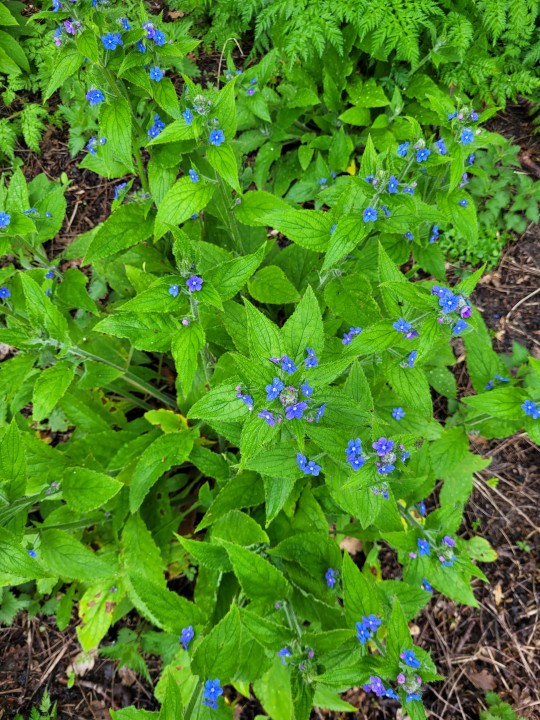

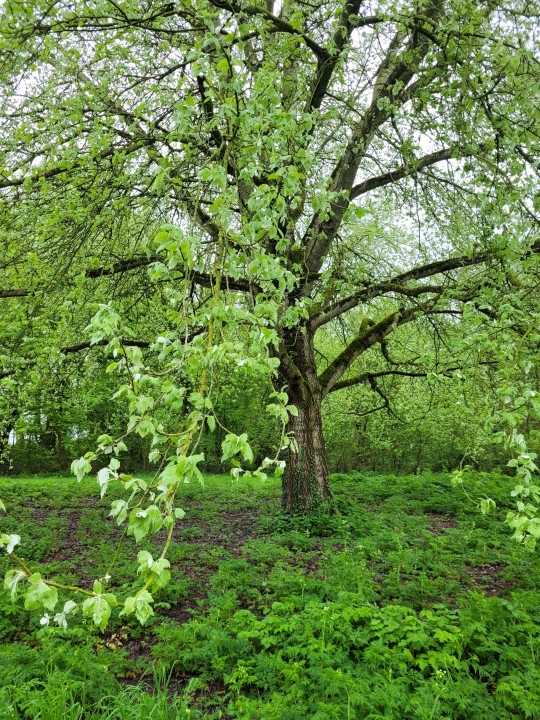


Really did my best trying find the English name of this darn purple plant, but Google Translate won guys, i'm sorry
#it's actually “green alkanet” in English#but the Dutch name (actually ant's sandwich from an ox tongue) left me in shambles#anyways it's a looker right. feel like I was somewhere in swampy South-Carolina all of a sudden#personal#nature
5 notes
·
View notes
Text
料理トリビアのまとめ #0008

#岩手の郷土料理#Jaja noodles#Ox tongue#牛タン#JapaneseCooking#Iwate local cuisine#bokkake soba#料理トリビア#Wanko soba#Miyagi local cuisine#わんこそば#宮城の郷土料理#じゃじゃ麺#ごっかけそば
0 notes
Photo

牛タン 宮城の郷土料理
牛タン(ぎゅうたん)は、宮城県仙台市を中心に広く愛されている郷土料理です。 牛の舌を使用し、焼肉や炭火で焼いて提供される料理です。柔らかく、ジューシーな食感と、濃厚な旨みが特徴です。 牛タンの誕生は、仙台市で牛舌を食べる習慣が始まったことによると言われています。 当初は安価な部位であったため、居酒屋などで手軽に楽しまれていましたが、そのうまさから人気を博し、現在では観光客や地元の方にも親しまれています。 一般的な牛タンは、特に厚めに切られた牛の舌を、塩やたれ(特製のタレ)などで味付けしてから炭火でじっくり焼き上げます。 その後、切り分けられて提供されることが一般的です。焼くことで旨味が凝縮され、柔らかくジューシーな味わいが楽しめます。 牛タンは宮城県の名物料理として親しまれており、仙台を訪れた際にはぜひ地元の味を楽しむ一品として食べてみることをお勧めします。
✄🔪🥄🍽✄🔪🥄🍽✄🔪🥄🍽✄🔪🥄🍽
Ox tongue Miyagi local cuisine
Beef tongue (gyutan) is a local dish that is widely loved mainly in Sendai City, Miyagi Prefecture. This dish uses beef tongue and is served grilled over yakiniku or charcoal. It is characterized by its soft, juicy texture and rich flavor. It is said that the origin of beef tongue is that the custom of eating beef tongue began in Sendai City. Initially, it was a cheap part of the meat, so it was easily enjoyed at pubs, but it gained popularity due to its deliciousness, and is now enjoyed by tourists and locals alike. Regular beef tongue is made by cutting beef tongue into particularly thick pieces, seasoning it with salt and a special sauce, and then slowly grilling it over charcoal. It is then typically cut into pieces and served. Grilling concentrates the flavor, making it soft and juicy. Beef tongue is a popular dish of Miyagi Prefecture, and when you visit Sendai, we recommend you try it as a dish to enjoy the local flavor.
0 notes
Text
"They worked on you the first time, didn't they?"
I am never going to emotionally recover from this line
#baldur's gate 3#bg3 memes#memes#astarion#bg3 astarion#haha#also when Raphael said someone must have cut out my tongue and replaced it with one of an ox like okay fuck you too
5 notes
·
View notes
Note
"Boss, are ya busy? Ya've got some tests that need doin' over in the office. Me an' Linn'll try to keep it swift as we can for ya!" / Quincy out here just trying to get Kid his checkups via Linn. XD
【 ⚙ 】 | 【 continued. 】 @crcwnedpirate @medicus-felini

Shit, was it that time of year again already? Kid had genuinely been hoping that if he didn't say anything, they would just let the whole routine check-up crap slide without a word. He hated going through this ordeal; all the little tests, the endless questionnaires, being told that several blood values were dangerously high, being told that he was at high risk of this and that...
If he went through with it, there would be subsequent weeks of Quincy and Linn monitoring every single drink he had, scolding him every time he tried to blow off some steam. What was the point of going through all of that again when they knew they couldn't change his habits? He was fine. There was nothing wrong with him. He didn't need any damn tests, he was going to live forever on an immortality potion concocted from high proof liquor, compressed circular pills, and a selection of various white powders.

❝ I am busy actually, yeah. ❞
He wasn't, but he's putting his goggles over his eyes so it looks like he's very involved in some kind of project that can't possibly be interrupted.
❝ Ain't a good time. ❞
#crcwnedpirate#medicus-felini#medicus felini#tw drugs#tw drug mention#tw drug abuse#tw alcohol mention#tw alcohol#【 ⚙ ˊˎ | GET OUT OF MY WAY | ask. 】#【 ⚙ ˊˎ | RECKLESS TONGUE | ic. 】#// crying. good look guys. wish you the best with getting him in there.#// stubborn as an ox.
3 notes
·
View notes